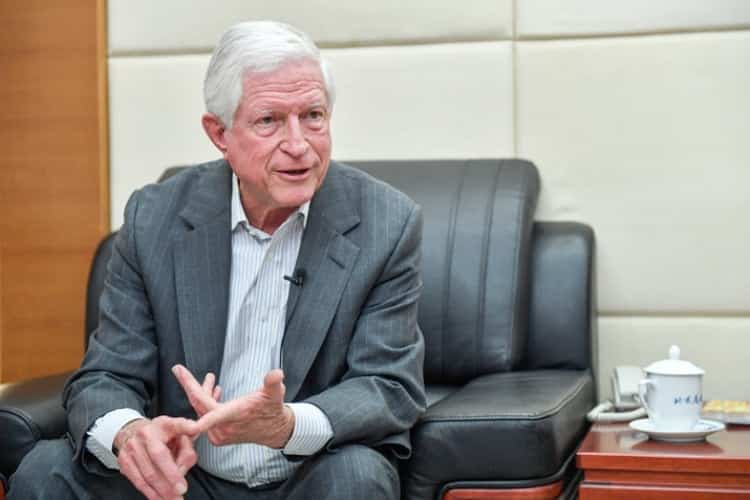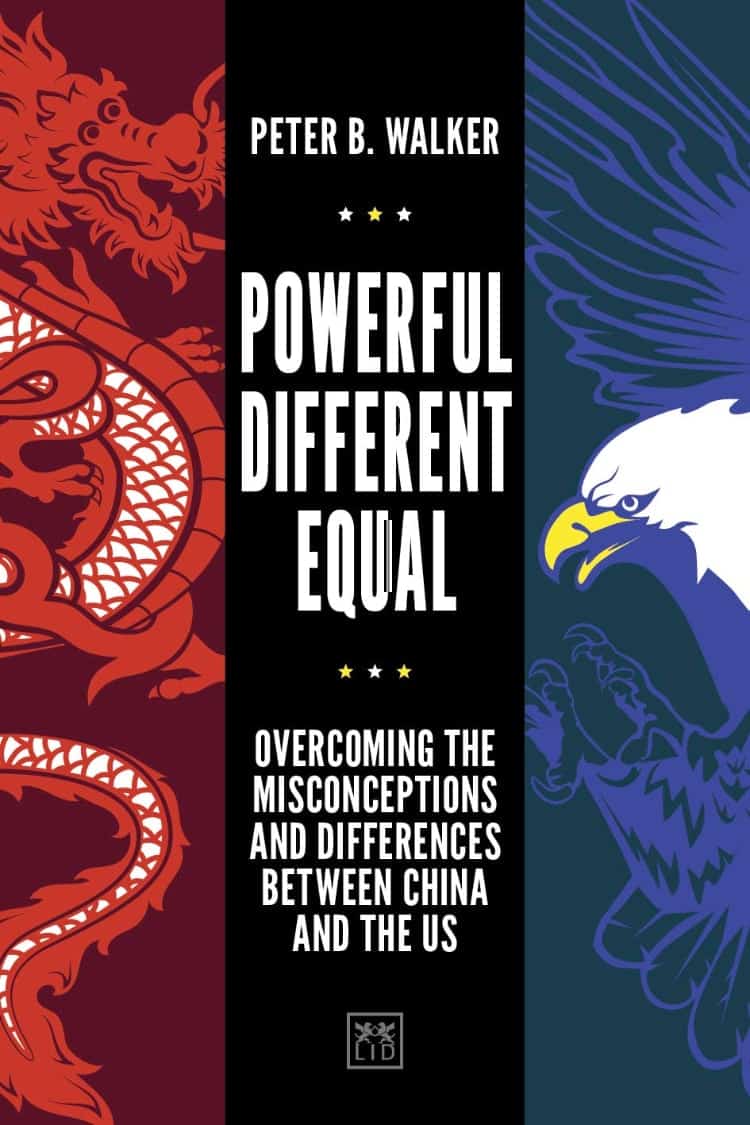Stepping Up To The China Opportunity

The bar for competing successfully in China keeps rising. There’s the trade war, as well as steps to protect the US’s intellectual property, plus a tightening on the availability of visas for Chinese students and scientists coming to American universities and companies, and a campaign to pressure countries not to use Huawei’s advanced 5G equipment. The bar has been raised higher still as Washington formally criticizes China for its actions in Hong Kong, Xinjiang, the South China Sea, and, most recently, for the spread of the coronavirus. Such sustained criticism has raised China’s “unfavorable” rating in the US from around 20 percent, just 10 years ago, to over 60 percent today. The flip side, rarely mentioned in the US media, but obvious to anyone who spends time with the Chinese, has been the rise in nationalism in China, and more specifically the resentment toward US efforts to contain China’s progress.
Indeed, despite all the efforts to contain it, China has become more economically powerful and important than ever before. It presents a greater opportunity than ever before, as the most attractive market in the world for US corporations. If, that is, corporations and their leaders are willing to understand the nation, and the roots of our fraught relationship with it.
There are, to begin with, fundamental differences in values and culture between the two nations. The US, grounded in Judeo Christian mindsets, is dualistic. Everything is good versus evil, or divided into winners and losers. It’s a zero sum view of the world. Therefore, if China is “winning” economically (or militarily, technologically, geopolitically, etc.) we must be “losing.” The US government constructed this view when it declared China a strategic threat. It does the same with Russia, but Russia is not a threat economically, so all economic attention gets focussed on China. Predictions that the Chinese economy will overtake the US economy within a decade only heighten US concerns and make China out to be the nation we must, in one way or another, win out over.
Chinese values are not dualistic. Instead, the focus on China is on win/win outcomes—a harmonic mindset. This way of approaching the world is deeply rooted in Taoism, Buddhism, and Confucianism, and it goes back over 2,000 years in Chinese history. There are plenty of examples of how our two nations’ different mindsets butts up against one another and blind us to certain realities. Perhaps the best example is how, for decades now, the US has expected China to become a democracy. The theory was that, as China became more prosperous, the people would demand more freedom, and ultimately a democratically elected government. Democracy would triumph—or win—over communism. The reality is that, while freedoms and prosperity have increased dramatically under the Chinese Communist Party over the past 40 years, democracy has not arrived, and shows no signs of arriving anytime soon.
Instead, China continues to invest in the core drivers of recent economic growth: urbanization, a rapidly growing middle class, and a growing services market. In addition, future growth will be driven by two major initiatives: 2025, which is focused on ten advanced technologies, and the Belt Road Initiative, which is building robust trade relationships, primarily among developing countries. The most enduring and powerful relationships between the US and China are held by US corporations with long experience in China. For this reason, it’s high time these corporations, and not the US government, have a stronger hand in shaping the US position in the Chinese market.
But, the bar for competing in the Chinese market keeps going up—and not simply because the US government has made China out to be such a bogeyman, and the Chinese resent how they’ve been cast. I’ve served as an advisor to top performing Chinese corporations—such as Alibaba, Baidu, Pin An, and Tencent—for the past 15 years. I have seen firsthand how quickly they’ve ramped up the quality of senior managers in that time. Each year, Chinese companies increase their penetration of the largest and top performing global companies. The pipeline of emerging unicorns from China is also strong. Apart from the maturing of the top management teams, the Chinese have a work ethic that few western companies can match. And, finally, the old criticism that the Chinese are not innovative has been put to bed. True, the vast majority of transformational products and services—search, social media, the iPhone—have been American, but the Chinese lead the world in adapting products to meet targeted customer needs. They have the largest market, and they know it. They serve it better than anyone—and they’re leveraging their models aggressively in South East Asia and many developing markets. Global companies ignoring China do so at their own peril.
For this reason, any company that aims to compete in China must, first, above all else, be clear on its competitive advantages. If those advantages can be neutralized, the Chinese will find a way. The Chinese have always been clear that they will always do what is in their best interest, and expect you to do the same. Many foreign companies gave their Chinese partners access to their IP and saw the relationship atrophy in the end, because the Chinese were able to leverage the IP without the partner. The western response is that this is simply “unfair.” But, again, this is misreading the situation—viewing it too dualistically, as a win/lose. The Chinese are pragmatists. Their focus is on consequences. If your value proposition is no longer valuable to them, why bother? Instead, be crystal clear about what you are bringing to the table, protect your position—or be marginalized.
What else must a US company expect if it is to compete in the Chinese market? There should be an expectation, at the outset, that you are in it for the long haul, and you will work to cultivate deep relationships at every level with your Chinese partners, as well as, perhaps, key government officials. Government officials expect you to know their Five Year Plan priorities and KPIs, and understand how what you are doing impacts them. If your priorities are not aligned with theirs, getting traction will be difficult. Business in China has for thousands of years been dependent on relationships, or quanxi. The vast majority of legal conflicts are resolved through informal negotiations. If you are at a strategic disadvantage, and lack quanxi, the outcome will not be positive.
The final critical dimension to succeeding in China is understanding Chinese culture. At the top of the list: the idea of “face,” or respect. The Chinese rarely criticize others directly, and do not respond directly to a lack of respect. But, sensitivities are high, and memories are long. The US government has shown a complete lack of sensitivity to face in its interactions with the Chinese government. Declaring China a “strategic threat” and Congressional resolutions to support the Hong Kong demonstrators attack China’s face. John Bolton, former head of national security, was quoted as saying “we are watching you in Hong Kong and if we see a repeat of Tiananmen there will be consequences.” This was as big a slap to the Chinese as could be imagined.
Face is not merely a matter of words. It often involves the rank of senior people attending senior meetings, the use of gifts, and where people sit at the table. This is why it is so important to cultivate deep relationships, to understand the various relationships and their hierarchies, and work within them. Americans tend to be very direct, to “get to the point.” The Chinese are highly indirect. Their language could seem to meander, but really they are looking at issues from many angles. Americans regard this as stalling, or as a sign of a lack of clarity or full understanding. This is partially true—the Chinese are indirect because they want to avoid the risk of making a mistake. They are looking at things from all angles so they can understand them fully. Only then, when they are 99% confident in their decision and that they are not making a mistake, will they move forward. Making a mistake is a loss of face to be avoided at all costs. Relatedly, Americans and Chinese have a very different perspective on time. For Americans “time is money,” and making progress means setting deadlines. The Chinese are much more focused on taking the right actions and heading in the right direction. Time will take care of itself.

Making sure a company is poised for success in China requires getting your strategic position right. You must have an eye toward sustainability, building quanxi with key government officials, and at multiple levels with partners, suppliers, and distributors. It means ensuring that everyone in the group in China is steeped in Chinese culture, mindsets and behavior. Ensuring this happens with a high level of confidence invariably requires heavy CEO involvement, and the full alignment of the team that needs to deliver. It requires patience, a steady hand, and a willingness to let go of the duality of win/lose, to embrace the harmony of win/win.
Bring the best of the CEOWORLD magazine's global journalism to audiences in the United States and around the world. - Add CEOWORLD magazine to your Google News feed.
Follow CEOWORLD magazine headlines on: Google News, LinkedIn, Twitter, and Facebook.
Copyright 2025 The CEOWORLD magazine. All rights reserved. This material (and any extract from it) must not be copied, redistributed or placed on any website, without CEOWORLD magazine' prior written consent. For media queries, please contact: info@ceoworld.biz











